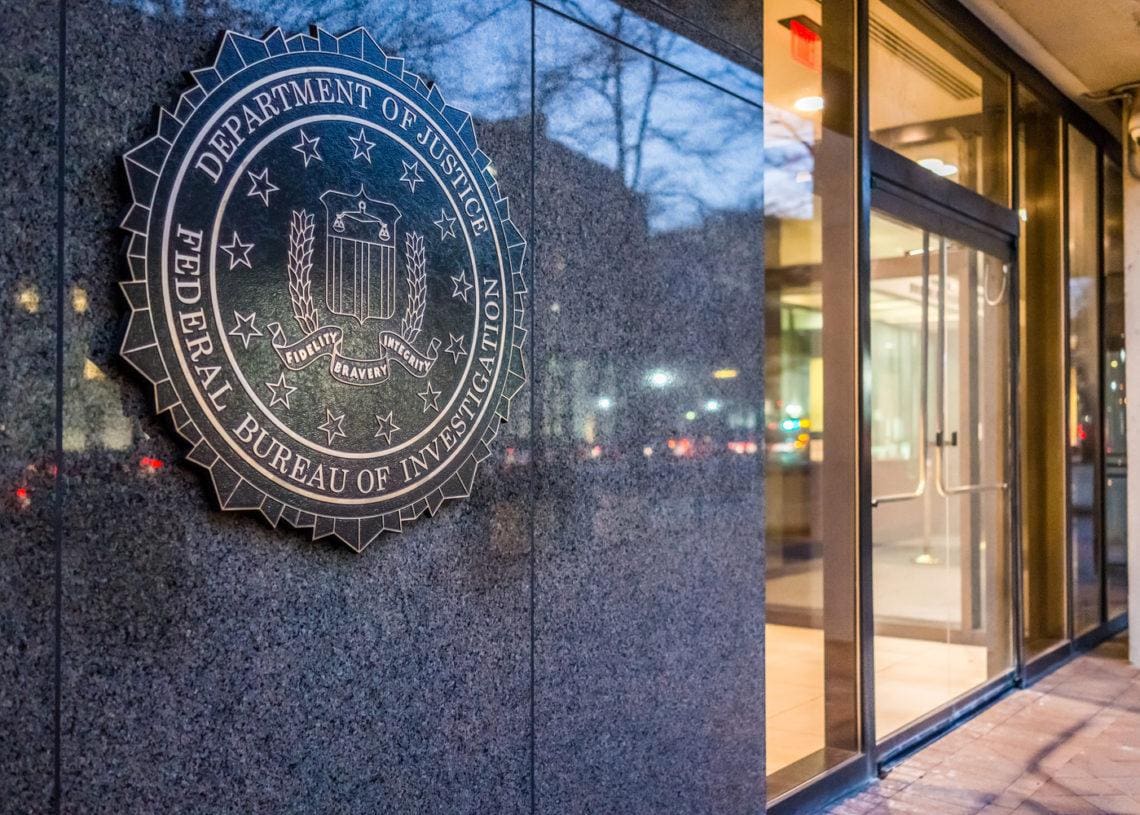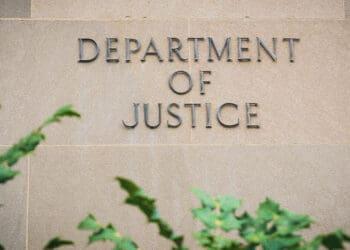Those monitoring criminal antitrust activity now have more clarity on the Biden Administration’s approach to enforcement. But that’s no excuse to rest easy. The DOJ Antitrust Division has amplified its ‘whole-of-government’ approach by seeking cooperation from other agencies and enforcers overseas. Recent initiatives target the Covid-era collusion schemes creating supply chain disruptions.
.@TheJusticeDept Announces Initiative to Protect Americans from Collusive Schemes Amid Supply Chain Disruptions https://t.co/SCN9xlWeDt pic.twitter.com/A6ZznespIh
— FBI (@FBI) February 17, 2022
In pursuit of this effort on an international level, the DOJ has assembled a working group of global peers including the Australian Competition and Consumer Commission, the Canadian Competition Bureau, the New Zealand Commerce Commission and the United Kingdom Competition and Markets Authority. This working group reportedly shares intelligence and utilizes international cooperation tools to detect and prevent anticompetitive schemes to fix prices or wages, rig bids or allocate markets.
A Whole-of-Government Approach to Procurement Collusion Allegations
The DOJ and FBI have previously joined forces to pursue areas of criminal antitrust enforcement. In November 2019, the DOJ launched the Procurement Collusion Strike Force (PCSF) as a coordinated national response amongst U.S. Attorneys’ Offices, the FBI and multiple agency inspectors general to combat antitrust schemes in government contracting at federal, state and local levels. Since its creation, the PCSF has added a number of national partners and even expanded internationally with the Fall 2020 launch of PCSF: Global, which is designed to promote the investigation and prosecution of schemes outside of the U.S.
The PCSF’s public investigations have to date brought scrutiny in the markets for security services, aluminum structures and concrete construction. These efforts have led to a total of $22 million paid in criminal fines and multiple guilty pleas by corporations and individuals. This includes the PCSF’s first international resolution in June 2021, which involved a Belgian firm that pled guilty to participating in a conspiracy to rig bids, allocate customers and fix prices for defense-related security services. Most recently, in February 2022 a former executive of a North Carolina engineering firm was convicted for his participation in a bid-rigging conspiracy for aluminum structure project contracts involving the North Carolina Department of Transportation.
The PCSF, which has been described by its director, Daniel Glad, as “a whole-of-government approach to combating a whole-of-government problem,” takes to heart the inter-agency cooperative approach encouraged in President Joe Biden’s July 2021 Executive Order on Promoting Competition in the American Economy. Glad indicated in an October 2021 speech that the DOJ sees an opportunity to “lead the way” in vigorous enforcement of the antitrust laws, and that the PCSF “sets a model” for cooperative government partnerships to aggressively protect competition.
A spring 2021 update from the DOJ indicated that the agency has “nearly three dozen PCSF-related investigations opened to date,” with this number climbing as PCSF agents uncover additional conduct through their Tip Center, district teams and the PCSF Data Analytics Project, which uses analytics to identify collusion and target bid rigging.
The recent success of the PCSF and proactive stance of the DOJ in tackling potential collusive behavior in specific markets presage an increase in criminal antitrust enforcement, and confirm that the agency’s reach will be bolstered through collaborations backed by the whole government.
DOJ Focus on Supply Chain Disruptions
The DOJ’s focus on supply chain collusion may have been born in part out of criticism from legislators and broader dissatisfaction from a public that has seen inflation accelerating to the highest level in decades. On February 8, 2022, Senator Elizabeth Warren (D-Mass.) implored Attorney General Merrick Garland and Deputy Attorney General Lisa Monaco to take more aggressive action against companies engaged in price-fixing. Warren wrote that increased demand coupled with buckling supply chains have allowed companies to grow their market power through anticompetitive means, which she implied is the root of today’s inflation.
The DOJ’s latest initiative expands the scope of its scrutiny into the transportation sector. In July 2021, the DOJ signed the first inter-agency Memorandum of Understanding with the Federal Maritime Commission (FMC) to foster cooperation between the agencies in oversight of the competitive conditions in the ocean liner shipping industry. This partnership was reaffirmed on February 28 through a joint announcement that the agencies would share resources to enhance enforcement in the maritime industry: the DOJ is to provide the FMC with the support of attorneys and economists for enforcement against violations of the Shipping Act, and the FMC has pledged to provide the DOJ with support and industry expertise in relation to antitrust enforcement actions. The DOJ’s most recent endeavor now brings other companies involved in the supply chain – those with trucking, warehousing, third party logistics and delivery capabilities – into the crosshairs.
Key Points
In partnership with the FBI, the DOJ Antitrust Division recently announced an initiative focused on collusive conduct arising from supply chain disruptions caused by Covid-19.
The announcement of this criminal enforcement priority follows on the heels of the Procurement Collusion Strike Force’s active prosecutions in 2020 and 2021, which resulted in a total of USD22 million in criminal fines and multiple guilty pleas.
The DOJ’s proactive posture in terms of criminal antitrust enforcement in recent years suggests an increase in both its activity and the activity of its national partners in the near future, posing a significant threat to those who seek to violate the antitrust laws.
This article first appeared on the site of Allen & Overy. It is reprinted here with permission.



 Todd Fishman is a partner in the litigation group at Allen & Overy, concentrating on the defense of antitrust, commodities markets and securities investigations, complex class actions and general commercial litigation. He represents companies and individuals in federal and state courts throughout the country and in proceedings before the Department of Justice, Securities and Exchange Commission, Commodity Futures Trading Commission, Federal Reserve Board, Financial Industry Regulatory Authority and state attorneys general in matters concerning accounting fraud, securities fraud and financial reporting, commodities fraud and manipulation, antitrust and competition matters, corrupt practices and money laundering, and ERISA.
Todd Fishman is a partner in the litigation group at Allen & Overy, concentrating on the defense of antitrust, commodities markets and securities investigations, complex class actions and general commercial litigation. He represents companies and individuals in federal and state courts throughout the country and in proceedings before the Department of Justice, Securities and Exchange Commission, Commodity Futures Trading Commission, Federal Reserve Board, Financial Industry Regulatory Authority and state attorneys general in matters concerning accounting fraud, securities fraud and financial reporting, commodities fraud and manipulation, antitrust and competition matters, corrupt practices and money laundering, and ERISA. Noah Brumfeld is a partner in the antitrust practice at Allen & Overy and splits his time between Washington, D.C. and Silicon Valley. He partners with clients to craft and execute global antitrust strategies while also representing them before US courts, the US Department of Justice, Federal Trade Commission, and the various states’ Attorney General offices.
Noah Brumfeld is a partner in the antitrust practice at Allen & Overy and splits his time between Washington, D.C. and Silicon Valley. He partners with clients to craft and execute global antitrust strategies while also representing them before US courts, the US Department of Justice, Federal Trade Commission, and the various states’ Attorney General offices. Eun Joo Hwang is an associate in the antitrust practice group, advising clients on a range of antitrust and competition issues. Her practice concentrates on antitrust clearance of mergers and acquisitions, antitrust litigation and non-merger antitrust investigations.
Eun Joo Hwang is an associate in the antitrust practice group, advising clients on a range of antitrust and competition issues. Her practice concentrates on antitrust clearance of mergers and acquisitions, antitrust litigation and non-merger antitrust investigations. Elaine Johnston is the head of Allen & Overy LLP's U.S. antitrust practice and co-head of the global antitrust practice. She has handled matters in a wide range of industries, including chemicals, pharmaceuticals and healthcare, oil and gas, engineering, banking and financial services, agricultural products, and vitamins. She has been featured in Chambers USA, BTI Client Service All-Stars, PLC Which Lawyer?, The International Who’s Who of Competition Lawyers, Euromoney’s Guide to the World’s Leading Competition and Antitrust Lawyers, and Global Competition Review's Women in Antitrust 2016.
Elaine Johnston is the head of Allen & Overy LLP's U.S. antitrust practice and co-head of the global antitrust practice. She has handled matters in a wide range of industries, including chemicals, pharmaceuticals and healthcare, oil and gas, engineering, banking and financial services, agricultural products, and vitamins. She has been featured in Chambers USA, BTI Client Service All-Stars, PLC Which Lawyer?, The International Who’s Who of Competition Lawyers, Euromoney’s Guide to the World’s Leading Competition and Antitrust Lawyers, and Global Competition Review's Women in Antitrust 2016.









